Best smart contract platforms for businesses [Updated]
Have you ever considered using a smart contract blockchain for your business? Nowadays, we see the world adopting cryptocurrency more and more, but the trend is bringing more features. Specifically, smart contracts are changing the way lending and borrowing work with DeFi crypto. Now, this feature may change the way we do business!
Various companies are seeing that the world is going through a digital transformation. The coronavirus pandemic made people rethink how they do things. As a result, they realized that they must adopt new tools that could help their businesses do more. They found that the answer lies in the features that the trending digital currency brings to the world.
We understand that many people don’t know much about cryptos and smart contract blockchains, and that’s why we’ll explain what those are and what they do. Next, we’ll go through the reasons why you would need to use blockchain technology for your business. More importantly, we’ll show you the best platforms for this and how you can use them.
What are smart contracts?

People are talking about smart contracts as if they’re a recent idea. Contrary to popular belief, a computer scientist named Nick Szabo came up with it in 1996.
He thought about putting contracts into computer code that had two qualities. First, it should be able to execute by itself. Second, it must do this without the help of anyone else.
To explain his idea, Szabo compared smart contracts to a vending machines. You put coins into it and then select food or drink. Then, it will drop your purchase onto a slot so you can pick it up.
No matter what, the vending machine will provide your item once it receives your money. It doesn’t need a person to bring you the food or drink either.
We only saw the smart contract idea spread into the mainstream when the blockchain community adopted it, and Ethereum founder Vitalik Buterin defined it differently.
He referred to it in 2013 as a code built for a blockchain environment. Blockchain is one type of distributed ledger technology that is behind all cryptocurrencies.
What is blockchain?
It’s not surprising since blockchain and smart contracts have similar features. The former is a decentralized network that relies on volunteers working together instead of a central hub.
Those “volunteers” are computers owned and operated by regular people known as nodes. In most cryptos like bitcoin, they’re the ones confirming transactions and enabling other features.
A regular network breaks if the central server breaks. On the other hand, a blockchain network keeps going even if a node breaks because the others can make up for it.
What’s more, it has a public ledger that keeps tabs on everything that happens on the network. For example, bitcoin’s ledger lets you see bitcoin addresses and the amount they exchanged.
Why would anyone use their computer to run this network? That’s because people earn more cryptos from it. This is also known as crypto mining.
A blockchain needs no central hub, similar to how smart contracts don’t need a third party to work. That’s why they work so well as smart contract blockchains!
Why do I need smart contract blockchains for business?
You may not see why this is a big deal at first glance. If you look around you, though, you’ll notice a digital transformation spreading across the world.
More people are working at home nowadays. We even visited our doctors more often via video conferencing. People barely use paper bills and coins since we have Cash App!
Businesses have to respond to these trends, especially yours. The biggest one of them is a cryptocurrency and all its services, such as smart contracts.
Of course, you’ll get something for your efforts. Instead of seeing smart contract blockchains as a hassle, you should look at the benefits they could give you:
- Autonomy – Smart contracts allow you to distribute payroll without needing a team. Your app could wire the right amounts to your employees once payday comes.
- Decentralization – As we said, the problem with ordinary networks is that it relies on a central hub, and if that breaks, the whole thing goes down. If you use smart contract blockchains, they’re less likely to stop working.
- Confidence – Let’s apply smart contracts as actual agreements. Sometimes, the parties involved argue because they can’t agree on how the terms work. With smart contracts, that thinking part is left to the code in charge of executing contracts once the conditions are met.
- Security – Blockchains aren’t completely immune to hacking; they’re highly resistant. The code is hard to crack, and you’ll need to hit so many nodes to pull it off. This is a good choice for managing supply chains nowadays.
- Speed – Back then, sending money overseas was a hassle, and you had to deal with so many documents and wait for such a long time. Now, your business can handle overseas transactions faster and easier with smart contract blockchains.
- Savings – Not only do smart contracts make money transfer faster, but they also make them cheaper too. You don’t have to deal with the usual transaction costs.
The best smart contract blockchains for business
- Ethereum
- Polkadot
- Near Protocol
- Solana
- Binance Smart Chain
- Hyperlogic Fabric
- Cardano
#1. Ethereum
Let’s start with the first smart contract platform and the second-largest cryptocurrency in the world. As we said, Vitalik Buterin launched the Ethereum blockchain in 2015.
If you’re looking for your first smart contract blockchain platform, you want to be safe and easy to use. Ethereum (ETH) can offer these because it’s been around for more than five years.
Many people and companies have invested in it, such as Samsung and Intel. Over time, they were able to create proper standards and form a programming language known as Solidity.
In other words, it’s much easier to make smart contracts on it compared to the others. However, it’s become expensive to use, and it doesn’t work well with other platforms.
Fortunately, Ethereum 2.0 is underway, so we may see these problems fixed soon. You can see part of it live, such as the new staking feature.
#2. Polkadot
You see new cryptos come out almost every month, and many of them are upgrades to the older ones like Ethereum. Polkadot is an example, and it’s one of the best smart contract blockchains.
It’s well-known because of its parachains, and blockchains that work outside the Polkadot mainnet. This allows you to get more details about your network.
Even better, parachains solve Ethereum’s problem of not being compatible with other platforms. If that’s the case, then why isn’t it number one?
First, hackers have cracked the Polkadot (DOT) code twice and went away with millions of dollars. Second, ETH is still easier to use than DOT, so more people prefer the former.
#3. NEAR Protocol
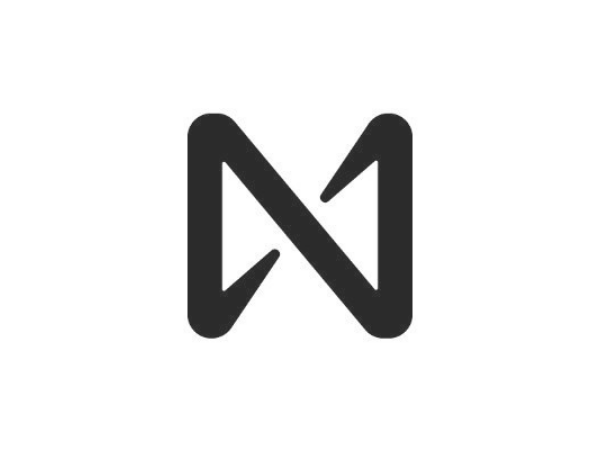
Photo Credit: icoholder.com
At the time of writing, this is a blockchain network that has been topping the charts. Its investors have been rejoicing due to the NEAR token price’s bull run.
This is a big reason why it’s one of the top smart contract platforms on this list. Of course, this is about smart contracts, so let’s talk about how the NEAR protocol holds up.
You could say that the NEAR protocol provides benefits that are similar to Polkadot’s. It allows for near-limitless scalability while providing super-fast transactions.
What’s more, you can easily bring Ethereum smart contracts to the NEAR Protocol. Just like Polkadot, you don’t have to make adjustments to them beforehand.
It’s on this list because it’s been trending recently. Perhaps it would become one of the best smart contract platforms in the long run. On the other hand, it might lag behind other cryptos.
The good thing is to have options, especially if you haven’t used smart contract platforms before. If the other recommendations don’t work out, you might want to try the NEAR Protocol.
#4. Solana
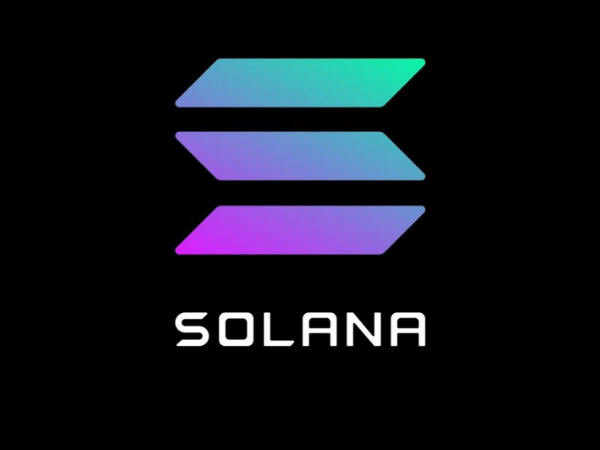
Photo Credit: medium.com
This is not just your run-of-the-mill smart contract platform. In 2021, people have been speculating that it would overtake Ethereum’s place in the cryptocurrency list.
That’s because it solves many of ETH’s major flaws. Solana doesn’t charge as much for transactions. Also, it can expand while remaining decentralized and secure.
What’s great about Solana’s smart contracts is that it separates contract logic and accounts. In other words, Solana accounts can store data like wallet information.
Meanwhile, Ethereum accounts just refer to user wallets. This could make Solana a great choice for businesses that need smart contract development.
Let’s say you want to improve how your online business handles transactions. Such a platform will allow you to provide more convenience for yourself and your customers.
Solana’s smart contracts could store data, so you can access records of loyal customers. This is useful for accounting purposes. Also, your marketing team can use the data for lead generation.
At the time of writing, Solana hosts over 400 projects, including other crypto networks like Chainlink. Perhaps your company should join this network.
#5. Binance Smart Chain
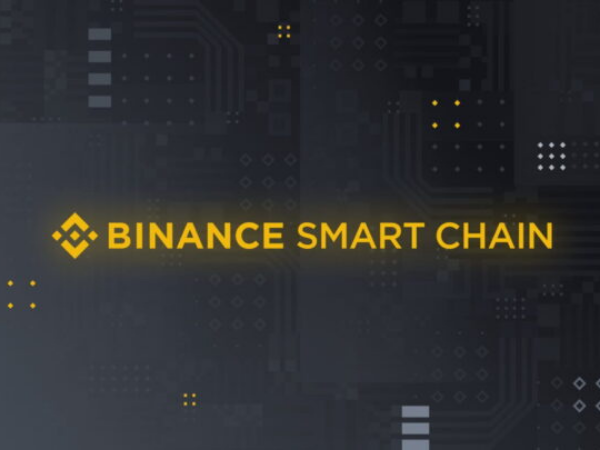
Photo Credit: investiki.com
If you’re going to use smart contracts, why not use a popular smart contract platform? The Binance Smart Chain (BSC) is one of those options you should at least consider.
Binance is the largest cryptocurrency exchange in the world, so you can often find the newest coins listed there. Seeing the opportunity, CEO Changpeng Zhao launched the smart contract platform.
Its smart contracts offer benefits that are similar to the ones provided by the other recommendations. Binance Smart Chain can generate new blocks of data or “blocks” every three seconds.
This is considerably much faster than Ethereum’s 13 seconds. However, the previous recommendations like Solana only need a second!
BSC also provides low gas fees, so it can reduce the cost of your smart contracts. Not only that, but it lets Ethereum users transition to BSC conveniently.
What’s more, Binance Smart Chain is compatible with pegged crypto coins from other networks. This means its smart contracts can help your business adapt to digital trends.
Nowadays, more companies around the world accept cryptocurrencies as payment methods. Small business apps like Shopify facilitate this widespread adoption.
This smart contract platform works with other blockchain networks, allowing for seamless exchanges. However, BSC’s credibility might just be its biggest selling point.
This smart contract platform comes from one of the biggest names in the crypto world. Binance has been operating for years, so some people feel safe with its innovative solutions.
Yet, this advantage could discourage others from using it. Unlike other smart contract platforms, BSC came from a centralized entity. After all, Binance is a company.
Some may doubt how decentralized BSC smart contracts truly are. This is a major factor when choosing smart contract platforms because people want nobody else to have control over their tools.
Nevertheless, the Binance Smart Chain is a viable tool for smart contracts. You might want to check the other recommendations before making a decision.
Read More: What to Know About Cryptocurrency Trading
#6. Hyperledger Fabric
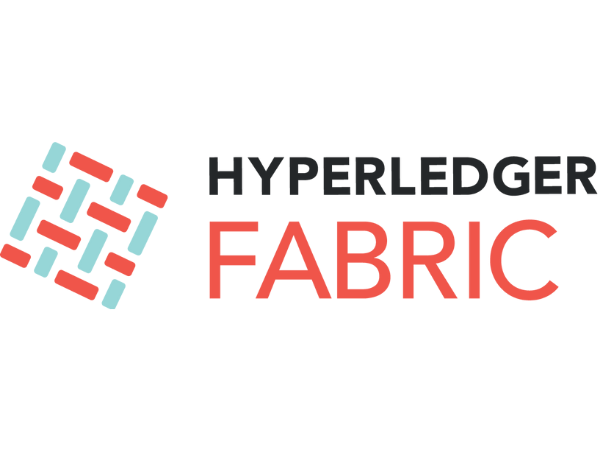
Photo Credit: medium.com
You may not have heard of this even if you follow crypto news. This is because Hyperledger Fabric doesn’t have a cryptocurrency. Instead, it focuses on connecting businesses.
The Linux Foundation launched this platform in 2015. Hyperledger is a permissioned blockchain, meaning members should let their names be known.
Again, you might be wondering why this isn’t number one. After all, it’s made for businesses, right? Sadly, this network is still hard to use, so you’ll have to spend a lot of time learning it.
It’s not easy to find people who know smart contract development with Hyperledger, either. You can’t just rely on people outside your company to understand your tools for you.
On the other hand, ETH is popular, so it’s easier to find someone who can use the network. It’s much easier to use, so it’s a better choice for your first smart contract blockchain?
#7. Cardano
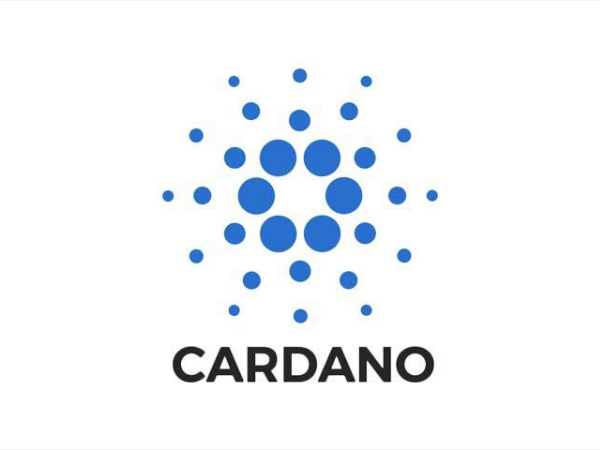
Photo Credit: medium.datadriveninvestor.com
This is a cryptocurrency network that remains one of the top 10 on the crypto list. Last year, Cardano launched the Alonzo upgrade that brought smart contracts to it.
Cardano has various real-world use- cases, such as its project for Ethiopia’s education system. Its students now wear ID cards that facilitate tracking their records.
Smart contract platforms inspire confidence in potential users. After all, this tells you that Cardano has actual use in the real world. Yet, its smart contracts need a bit more work.
At the time of writing, Cardano can execute smart contracts, but it doesn’t have an edge over other alternatives. However, it may still have potential.
The great thing about Cardano is that it posts regular updates. Read them, and you’ll see that the dev team is improving Cardano’s smart contracts. That’s why it makes this list, despite being at the bottom.
How do I apply digital transformation to my business?
Catching up to the tech changes isn’t just about getting the right tools. You will have to check every part of your business that may need to adjust. You can start with the following steps:
- Check your status – Can you spend enough on these changes? Do you have people who know how to use smart contract languages? Remember that you will need enough computing power and skilled staff for these changes.
- Will it truly help? – You have to choose the parts of your business that truly need digital transformation. Some may not need it, while you might not have enough funds for others. The goal is to improve your business with tech.
- Have a strategy – Speak with your partners and employees about how you can use it to reach the company’s goals.
- Look at the risks – Expect your plan not to go as intended. Everyone’s trying their ways of adapting that also fails sometimes. Just look at what went wrong and improve your plan based on what you learned.
- Choose the best tools – Tech allows businesses to get real-time data and other features that let them adapt quickly. Make sure you get the best ones that are within your budget.
- Help your team learn – Make sure your existing employees get used to your new tech. After all, they will have to deal with them too.
Final thoughts
We just explained the basics of smart contract blockchains. Of course, you’ll need to know beyond that. Check other websites for more in-depth info.
Smart contracts are just a small part of the digital changes that are happening around you. If you truly adapt, you have to learn all that you can about them.
Get started by reading more Inquirer USA articles. They can teach you more about blockchain technology and cryptos. Note that this article doesn’t provide investment advice.
If you are interested in content marketing, please email anthony@Inquirer.net. Updated April 25, 2022.
Sponsored Advertising Content:
Advertorial or Sponsorship User published Content does not represent the views of the Company or any individual associated with the Company, and we do not control this Content. In no event shall you represent or suggest, directly or indirectly, the Company's endorsement of user published Content.
The company does not vouch for the accuracy or credibility of any user published Content on our Website and does not take any responsibility or assume any liability for any actions you may take as a result of reading user published Content on our Website.
Through your use of the Website and Services, you may be exposed to Content that you may find offensive, objectionable, harmful, inaccurate, or deceptive.
By using our Website, you assume all associated risks.This Website contains hyperlinks to other websites controlled by third parties. These links are provided solely as a convenience to you and do not imply endorsement by the Company of, or any affiliation with, or endorsement by, the owner of the linked website.
Company is not responsible for the contents or use of any linked website, or any consequence of making the link.
This content is provided by New Start Advantage LLC through a licensed media partnership with Inquirer.net. Inquirer.net does not endorse or verify partner content. All information is for educational purposes only and does not constitute financial advice. Offers and terms may change without notice.






